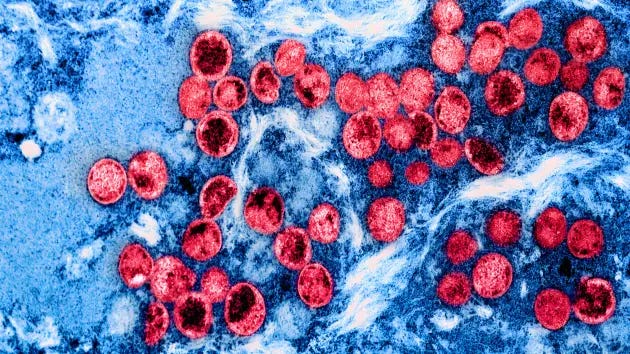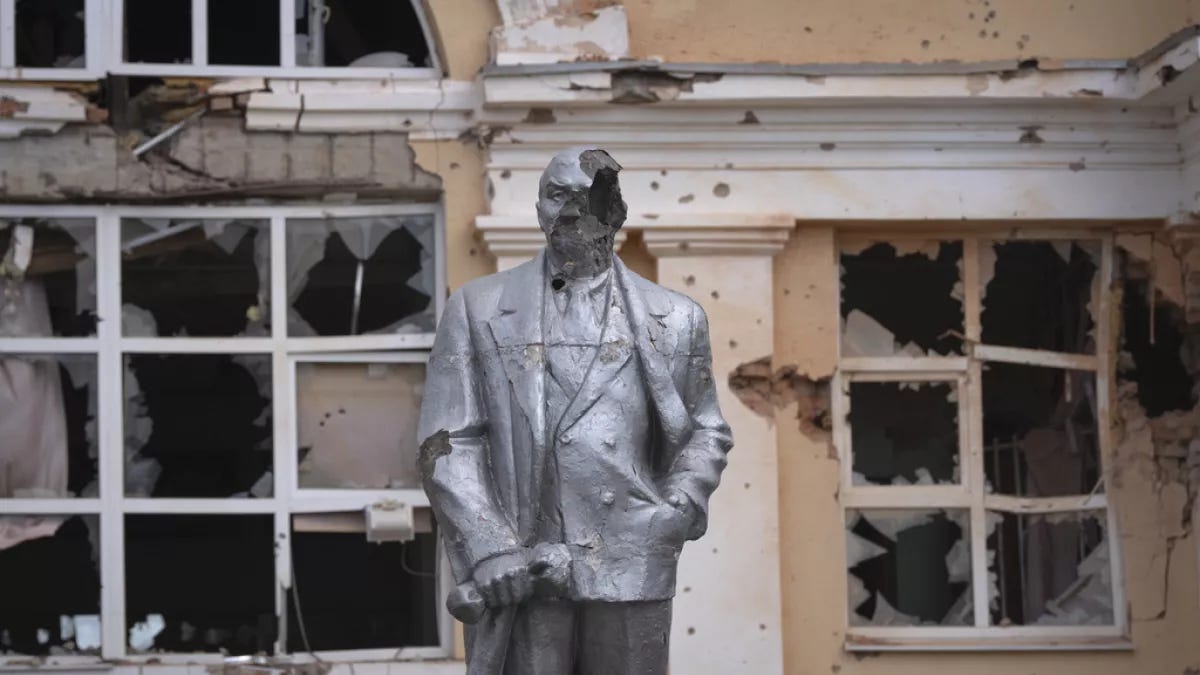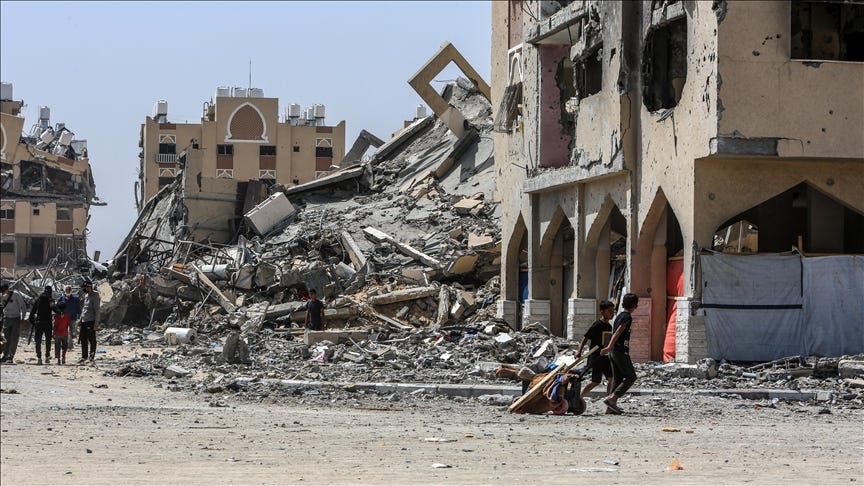August 2024 roundup: UK riots, MPOX virus, updates on Ukraine and Israel-Gaza War
A roundup of news for August 2024
Good morning, afternoon, and evening wherever you are,
Sorry for how late this newsletter has been, in short life has been crazy, so I’ve been dealing with that. I hope everyone has been liking the recent content that I have been putting out, I am hoping to develop it to be the best it can be for you guys. I also have another thing that I’m working on as well, this is all part of a recent new direction I want to take the newsletter.
If you like what you are reading and listening please share, like, and subscribe as that is the best way to support me. I’ve also been getting back to my digital arts side working with applications like Photoshop, Illustrator and Indesign that I want to incorporate here as well.
Anyways let’s get to the headlines.
#5: Bangladesh protests
Anti-government protests that started in June ended in August after Bangladesh’s Prime Minister, Sheikh Hasina resigned from her position after 15 years in power. The protests had started peacefully in June when students demanded that the government remove quotas for jobs in the civil service which were reserved for relatives of veterans of the 1971 independence war.
While the government met the students demand, protests continued and grew bigger over other frustrations with the Hasina government who has been accused by her critics of becoming a dictator. Incendiary remarks of the protestors from the Prime Minister has also been a contributor of this as well. During the protests, authorities responded back by throwing tear gas and stun grenades to disperse protestors.
The UN officer of the human rights commissioner (UNOCHR) had reported that over 600 people were killed, with 250 of those deaths coming from August 5th to 6th. The UNOCHR has also reported a number of deaths that happened from August 7th to 11th. Thousands of protestors were also injured in the protests as well.
On August 5th, Hasina announced her resignation as Prime Minister and fled the country to India. Muhammad Yunus, a nobel peace prize winning economist, has taken the place as the head of an interim government. Yunus had risen to international popularity in the early to mid 2000s, being known as the “banker of the poor”, after founding Grameen bank, a bank dedicated towards giving small loans to entrepreneurs who usually could not qualify for, he also introduced a policy of microcredit for women.
Yunus had been a critic of Hasina and was convicted in January over violations of labour law and was sentenced to six months, his supporters have viewed these charges as politically motivated. Protest leaders have backed Yunus to be the interim leader of Bangladesh until elections are held, until then, Yunus will deal with the challenge of bringing stability and order to the country both politically and economically. On CNBC, chief economist for DBS, Taimur Baig, said Yunus will likely have support from both foreign powers and the country’s military to help get the job done.
However, others remain cautious regarding the situation, Tazreena Sajjad, a lecturer at the American University school of international service, wrote that concerns over incidences of looting, arson and violence remains as well as attacks against the country’s Hindu population. She also described the situation as volatile, with armed wings of Bangladesh’s political parties blaming each other for the violence along with rumors and disinformation campaigns could “certainly have some significant impact to the situation”.
#4: MPOX epidemic
The WHO has declared a global health emergency after cases of the monkeypox virus (more commonly known as MPOX) have been seen throughout the Central African region with, the Democratic Republic of Congo (DRC) having nearly all of those cases. The earliest of those cases appeared a year prior in September of last year, however the African Centres Disease Control and Prevention has reported a 160 percent increase of cases this year compared to last year.
Neighbouring countries Burundi, Uganda, Kenya and the CAR have also seen large numbers of cases. Sweden and Thailand have each reported one case of those who have the virus. The mpox virus is a viral virus that is a part of the same family of smallpox viruses spread through close skin to skin contact, sexual contact being the most common way of spreading it. Some of the symptoms of monkeypox include fever, chills, muscle aches, rashes and lesions filled with pus.
Outbreaks of the mpox virus are common in the DRC, with the epidemic in May 2022 starting the county’s eastern Kwango province and later spreading to 22 of the 26 provinces of the DRC. but a new strain of the virus, Clade I B, has taken hold in the province of South Kivu, and some have consider it the most deadly yet.
The crowded camps in the country’s east has been where the virus has been most prevalent where most of the cases have come from children. At least 450 people have been killed due to the virus. Vaccines for the mpox virus are available, however, the DRC does not have them. Congolese officials say they don’t expect to receive deliveries of the vaccine this week due to the processes between the Country’s pharmaceutical agency and the company that makes the vaccines.
#3: UK Riots
Riots broke out across the United Kingdom after three girls were killed in a knife attack during a Taylor Swift themed dance class in the town Southport. A day after the attack, a riot took place near a mosque in the town after false rumors were spread about the identity of the perpetrator of the attack. An account on X (formerly Twitter) belonging to businesswoman and anti lockdown campaigner, Bernie Spofforth, and a false news website Channel 3 News, were one of the first to publish false information of the attacker claiming an asylum seeker named Ali Al-Shakati was responsible for the murders. Southport police said the claim was not true .
The suspect is an 18 year old man named Axel Rudakubana. Officials lifted restrictions that protected the identity of the perpetrator citing that he would be turning 18 a few days prior to his pre-trial hearing and also the misinformation that was being spread at the time.
However, that did not quell the violence as several riots were spread to many towns and cities in England and Northern Ireland. One of the most notable of the riots were In the town of Rotherham, a mob targeted a hotel that housed asylum seekers, rioters threw objects and smashed the windows of the hotel. The Police said that 51 officers and their police dogs were injured.
Similar scenes of violence were seen throughout the United Kingdom as rioting was experienced in cities and towns such as Middlesbrough, Newcastle, Sunderland, Manchester, Bristol and Belfast. Anti-racist protests were held at the time as well, with one of the largest happening in the area of Walthamstow in London being held on August 7th.
British Prime Minister, Keir Starmer, condemned the riots and said that the rioters “will feel the full force of the law". Thousands of rioters have been arrested, with many of them already charged and facing long sentences. Concerns have been raised over the jailing of rioters due to the ongoing situation of overcrowding in prisons. The owner of X, Elon Musk accused Starmer for two tier policing and claimed that civil war was coming to the UK, which was denounced by Starmer and his office.
#2: Ukraine war updates
On August 6th, Ukrainian forces launched an incursion into the Russian region of Kursk, while there have been previous instances of small incursions across the Ukraine and Russia border, the scale of the incursion along with the secrecy of the operation has caught both Russia and Ukraine’s allies by surprise. Ukraine’s chief commander, Oleksander Syrskyi said that forces capture 1,000 sq km of territory and 90 settlements. The acting governor for Kursk, Alexei Smirnov said that Ukraine had captured 28 settlements.
The biggest settlement under control by Ukrainian forces is the town of Sudzha. Journalists were able to enter the town by the permission of Ukrainian officials. However, Russia has charged CNN journalist, Nick Paton Walsh, along with Ukrainian journalists, Diana Butsko and Olesia Borovyk on the grounds of “illegal border crossings”. Russia’s security agency, the FSB, said it issued a warrant out for their arrests. Italian journalists, Stefani Battistini and Simoni Traini, were also charged on the same grounds a few days prior leading to the Russian Foreign Ministry summoning the Italian ambassador.
The incursion into Kursk, has saw thousands of Russians in the region evacuate to other parts of the country. The neighbouring Belgorod region has seen many of its residents evacuating as well, after Ukrainian forces attempt to enter that region as well, the region’s governor declared a state of emergency.
There has been a wide number of reasons that have been made over the incursion, with Ukrainian President, Volodymyr Zelensky saying that the purpose of the incursion is to create a “buffer zone” to prevent cross-border attacks from Russian forces and is related to a larger plan to end the war. He also said that he does not plan to permanently annex the region.
In an article written early into the incursion,
, a retired Australian army general and a senior fellow at the Lowy institute, gave a few possible objectives militarily for the incursion. Which you can read here:Another view of the incursion is that it is to send a message to both Russians and their president, Vladimir Putin, that the war is still ongoing and is affecting them.
The Russians did respond to the incursion with several attacks the largest of them were on August 26th. Hitting several cities across the country targeting energy infrastructure as way to dampen morale of Ukrainians heading into the winter.
A Ukrainian F-16 jet crashed while repelling the attacks on the same day. The pilot of the jet was killed. It is not officially known for what caused the plane to crash but a US source cited by Reuters that the crash may have been caused by a mechanical failure or pilot error. Mariana Bezugla, a member of the defence committee claimed the plane was shot down by friendly fire. The crash led to the firing of Ukraine’s head of air force.
Meanwhile, the Kursk incursion has not seen any huge effect on slowing the advance of Russian forces through the Donetsk region as they have captured the settlement of Niu York and are approaching the towns of Pokrovsk and Toretsk. Residents in both towns have been told by Ukrainian authorities to evacuate.
Fears grow regarding attacks to the Kursk nuclear power plant. The head of the International Atomic and Energy Agency (IAEA), Rafael Grossi, says that the danger of a nuclear accident at the plant has emerged. Grossi visited the Kursk plant after Putin claimed that the plant was under fire. Grossi said that he had seen drone strikes near the area and has seen the remnants of the drone, but did not say who was responsible for the attack. “My message is the same for everyone: no nuclear accident can happen. It is our responsibility to make sure of that.” Grossi said in a news conference.
Similar concerns were brought up with regards to the Chernobyl power plant and the Zaporizhzhya power plant as both plants were at one time or are currently under the control of Russian forces. With Grossi previously condemning the deterioration of safety at the Zaporizhzhya plant.
Away from the battlefield
On August 1st, The United States and Russia conducted the biggest prisoner swap since the cold war which was notable due to the release of journalists, Evan Gershkovich, Alsu Kurmasheva, former US marine, Paul Whelan and Russian opposition activist, Vladimir Kara Murza.
They were among the 16 prisoners released by Russia and Belarus, while seven Russian prisoners were released from various countries. It was reported that prior to his death, Russian opposition activist, Alexei Navalny would also be a part of the prisoner exchange.
While their was joy and jubilation over the prisoner swap by many, it was also bittersweet moment given that their are still a number of foreign nationals and opposition activists still detained in Russian prisons as well as concerns over those swapped on the Russian side which includes, Vadim Krasikov, who was sentenced to life imprisonment in Germany over the assassination of a Chechen man, Zelimkhan Khangoshvili that took place in August of 2019.
Ukraine continues to call on its allies to lift restrictions on long range attacks, as Ukraine’s foreign minister, Dmytro Kuebla said in a broadcast conversation with his Polish counterpart, Radosław Sikorski, says the biggest problem for them is their allies fear of escalation.
In the same conversation, Sikorski, backed Ukraine’s demands saying ““let Ukraine fight with whatever it has and and let’s deliver them more”.
India’s President, Narendra Modi met with President Zelensky in Kyiv, this is the first time an Indian president has visited the country. The visit was notable to do the fact that last month, when Russian airstrikes hit a children’s hospital in Kyiv, Modi was at that time meeting with President Putin in Moscow and embraced him warmly which outraged both Ukrainian and some Western leaders.
During the meeting Modi emphasized to Zelensky that India would be prepared to help facilitate negotiations to end the war between Ukraine and Russia. The meeting was seen by many as India maintaining it’s neutral position on the war. As it balances it’s friendly relations with both Russia and the West.
Russia and Ukraine exchanged 115 prisoners from each side with the United Arab Emirates (UAE) acting as an intermediary. 82 of those prisoners involved in the exchange were involved in battle of Mariupol according to Ukraine’s Human Rights Commissioner.
#1 Israel-Gaza war updates
On August 31st, IDF forces recovered the bodies of six hostages from tunnel in Rafah. According to the IDF, the hostages were killed by their captors from close range 1-2 days earlier. One of the hostages included an American-Israeli citizen, Hersh Goldberg-Polin. A spokesperson for Hamas blamed Israeli bombing for killing the hostages, without giving specifics.
Hersh Goldberg-Polin, who lost his left arm when he was fending off attacks during October 7th attacks was also seen in a video recorded by Hamas back in April as well.
Israel’s largest labour union, called for a general strike across the country the next day, where thousands of protestors demanded that the Israeli government accepts a ceasefire deal for the return of the hostages that are held by Hamas. A labour court later ruled that the strike had to end, which was sooner then what was planned by the union. Israeli police responded to the protests with stun grenades and shot foam from water cannons at the protestors.
A group representing the hostages accused Israeli Prime Minister Benjamin Netanyahu for “abandoning the hostages”. Netanyahu blamed Hamas for the deaths of the hostages and for “not accepting” a ceasefire deal.
However, Netanyahu has kept insisting that Israeli control of the Phildelphi corridor, a border crossing between Gaza and Egypt, which is controlled by Egypt and Israel, is key for any approval for a ceasefire deal.
Israeli forces raided the city of Jenin in the West Bank, saying the nine day operation was to deal with Palestinian militants in the city. The operation saw 14 militants killed according to the IDF and also said 30 explosives were implanted in the streets. The operation comes as violence in the West Bank continues between Israeli settlers and Palestinians.
The US, Egypt, and Qatar announced that they will present a “take it or leave it” ceasefire deal soon according to sources in the White House. A white house official said the deal was in the making prior to the discovery of the body of the Hostages
On August 25th, Hezbollah and Israel traded attacks with each other, with the IDF claiming that they launched extensive attacks on military targets in northern Lebanon. Hezbollah later launched rocket attacks across Israel as a response to the assassination of its senior commander back on July 31st.
In terms of casualties, 6 Hezbollah militants and 1 Israeli navy officer were killed. A few civilians and combatants were reported to have been injured.










